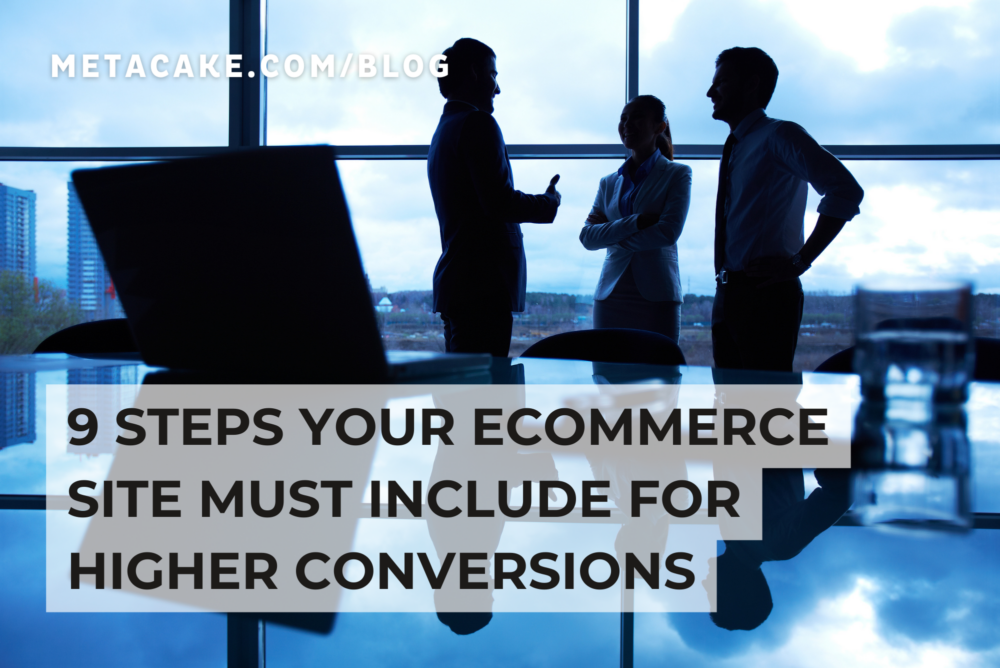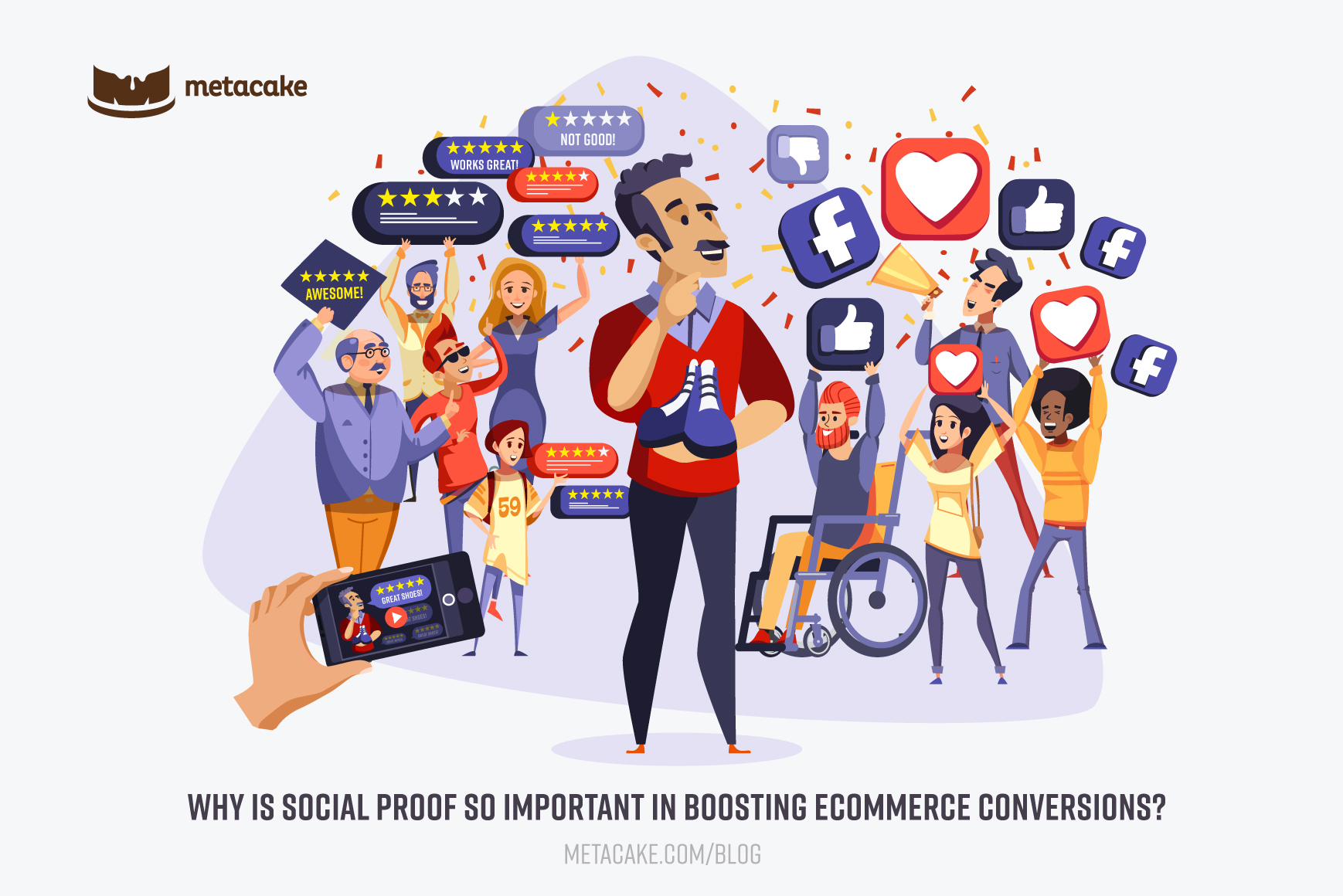
Why Is Social Proof So Important In Boosting Ecommerce Conversions?
Social proof is one of, if not the biggest, factors in converting a sale online. In fact, some data shows that products with 20+ reviews had an 83.3% higher conversion rate. It’s amazing how much of a difference it makes, and if you put yourself in the mind of your customer, it makes complete sense. After all, when is the last time you made a buying decision solely based on the description on a product page? We typically take anything a business says with a grain of salt. However, we tend to be highly trusting of other people and an objective third party.
What is Social Proof?
Social proof comes in various forms and should be used all throughout the sales funnel. For instance, on social media ads and posts, likes/reactions, comments, and shares all contribute to social proof. You can also utilize forms of social proof on your site’s homepage with customer testimonials, through the use of quotes or videos. Additionally, you should definitely have customer reviews listed prominently on product listings (both in the list view and detail page) as well. Lastly, don’t forget to syndicate all those reviews to Google and Bing for Ads.
To give you some inspiration, let’s take a look at a few examples of social proof done well.
Social Proof Done Well
1. Click Funnels
This is a tool designed for entrepreneurs to quickly build their own marketing funnels without having to rely on a tech team. Although not a traditional ecommerce company, they create social proof really well. The company devoted an entire section to video testimonials from a variety of customers, and it does an incredible job of building trust with site visitors.
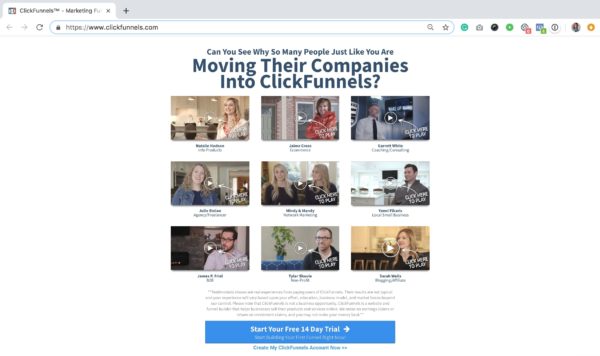
Example: Click Funnels testimonials page
2. Tony Robbins
Tony is a best-selling author and celebrity life coach (he’s also a client of ours 😁). Although Tony is already regarded as the best in the world at creating results for people, he still has social proof peppered throughout his entire site in the form of testimonials from big names as well as reviews on his products. Clearly his team is well aware that individual stories are far more powerful than a description of his events and material could ever be.
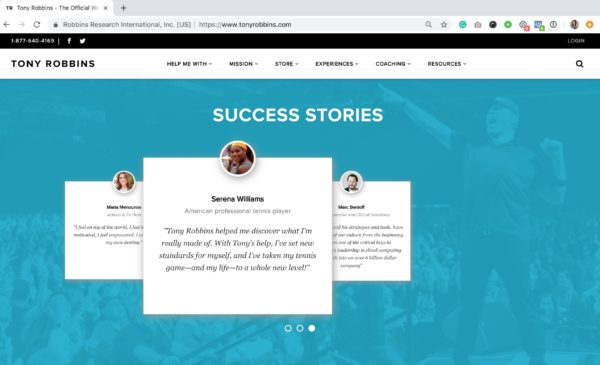
Example: Tony Robbins Testimonials & Reviews
3. GrooveLife
GrooveLife is one of the top-selling silicone ring companies and active product brands out there. They have also expanded their brand into Apple Watch bands, unique apparel, and an exciting adventure channel on YouTube. Groove could write a book about the unique features and benefits of their products, but what sets them apart is that they have raving fans who are vocal about their products. Their website features thousands of product reviews from happy customers and their Facebook ads typically see hundreds of reactions and comments. At this point, social proof is certainly a monumental factor in continuing to sell their products.
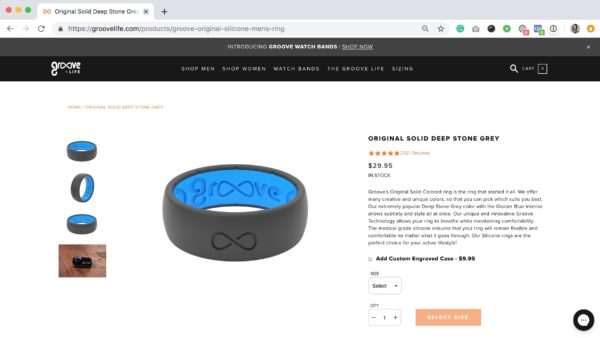
Example: Groove Product Page Reviews
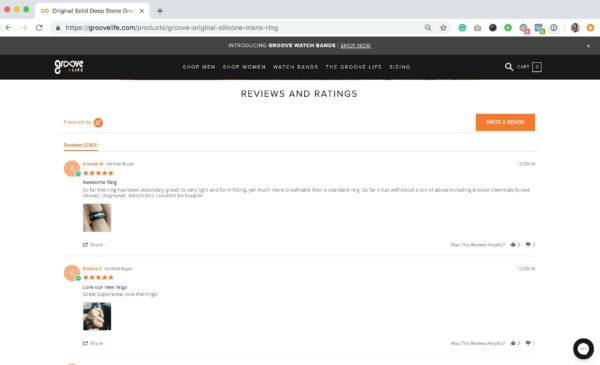
Example: Groove Product Page Reviews Extended
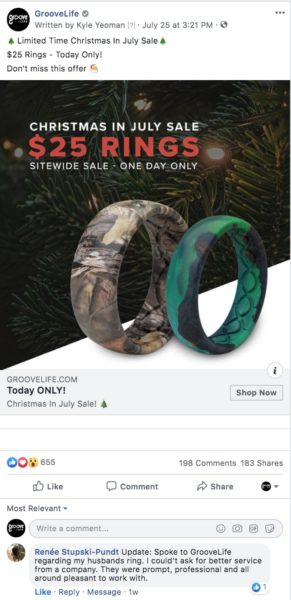
Example: Groove Review on Facebook Ads
Which to choose?
If you’re wondering what form of social proof to focus on, the truth is that there isn’t just one type that works the best. Whether you have customer reviews on a product page, testimonials on a homepage, comments on your ads, or even reviews on Google and Yelp, they all play a role. However, for an ecommerce brand the most important social proof are product-specific reviews.
When inspiring your reviews, the most important thing to focus on is authenticity. In other words, people will quickly detect if things sound too good to be true. Therefore, don’t delete or downplay negative reviews and comments unless they are clearly ill-intentioned. The way you handle these is key. For instance, if you take this as an opportunity to make the situation right with the customer and improve, this is a great opportunity to turn a customer into a fan and to display your true intentions as a business for anyone who is paying attention.
Placement is key
Depending on your business and the products or services you offer, the best placement for your social proof can vary. For ecommerce brands be sure the placement is at least as follows:
- Homepage
- Listing (collection) pages
- Detail (product) pages
- Checkout
- Emails, both pre and post purchase
- Google Shopping, Google Ads, Bing Ads
With other types of businesses, the placement can go something like this:
B2B sites
- About page
- Homepage
- Sales page (for example, a contact form)
- Dedicated page, built for testimonials and reviews
Membership
- Signup flow
- Homepage
- Include in reminder emails (to encourage members to resubscribe)
Blog/content
- Encourage readers to comment with their thoughts
- Include reviews / feedback in the sidebar
Next Steps
Whether you’re a brand that’s been around for a long time or just starting out, it can be difficult to begin collecting reviews.
First, choose a review platform. We have platform recommendations here. Be sure to purchase a plan that includes syndication to ad platforms (assuming you’re running ads, which you should be).
Second, begin collecting them. No matter how long you’ve been around, we’ve found that incentivizing reviews tends to be the most effective way to get started. In your post-purchase email sequence, make sure you include a simple email to ask for a review. Include a link that takes them directly to the review platform and offer a 15% off coupon on their next purchase as a thank you. If you’re looking for video testimonials, consider segmenting a smaller group of customers (likely repeat buyers), thank them for their loyalty, and offer an even stronger incentive.
Most importantly, remember that outside of tactical execution, generating social proof starts with being an authentic brand. You must be genuine in your effort to create a product or service that you stand behind but are also willing to revise when customer feedback calls for it.
Additionally, think about your brand and the way you market your product to first-time buyers. Are you giving them an offer they can’t refuse? Does your offer eliminate any sense of risk for new customers? We’ve written about ways to do that, and if you can master it, you will create an opportunity for customers to buy your product, fall in love with it, and then actually feel compelled to give feedback.


